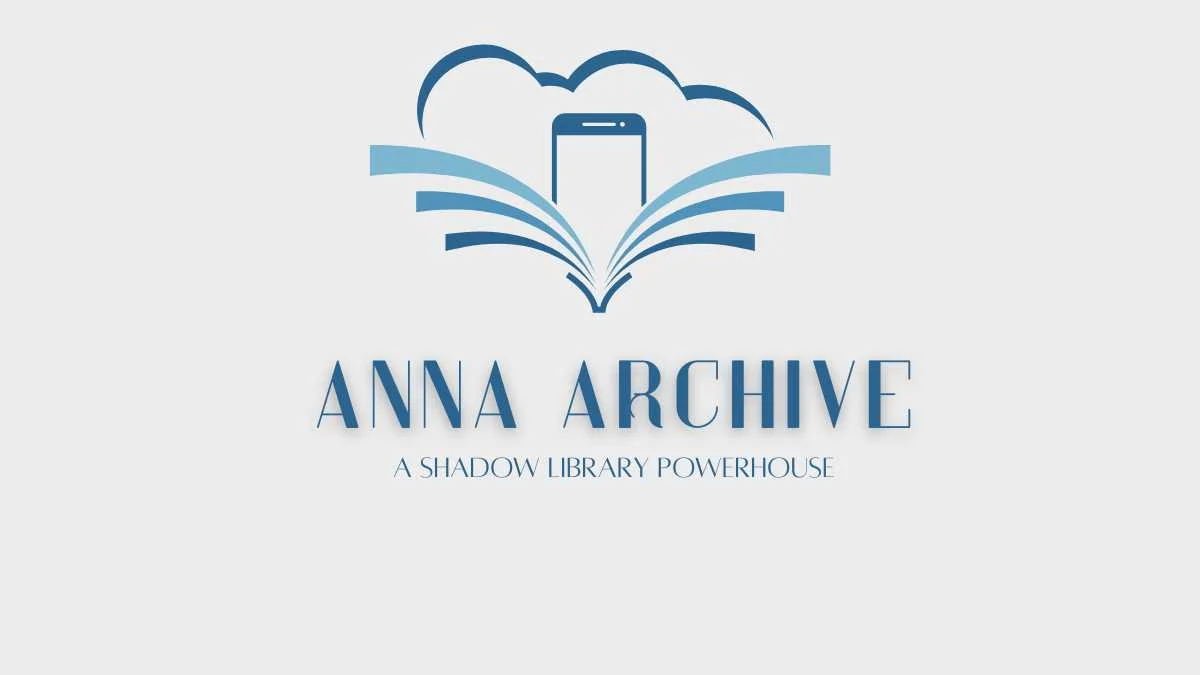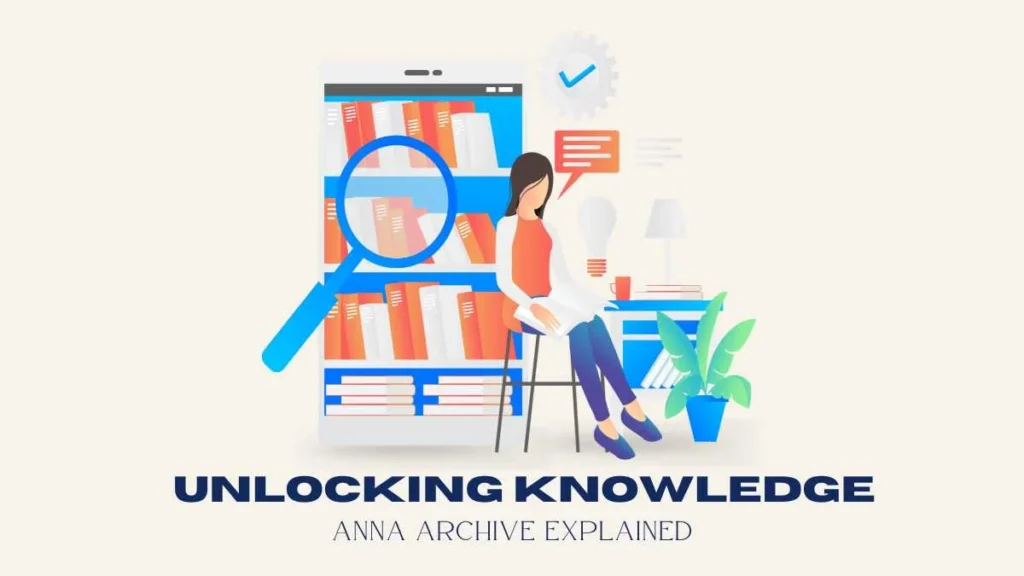EDUCATION
Anna Archive: A Shadow Library Powerhouse

Anna Archive is a free, open-source shadow library search engine that plays a vital role in the preservation and accessibility of digital knowledge. Launched in 2022 by the Pirate Library Mirror group, it was created as a response to aggressive copyright takedowns targeting major online repositories such as Library Genesis (LibGen), Z-Library, and Sci-Hub.
Rather than hosting any files directly, Anna Archive functions as a metadata aggregator. It indexes bibliographic information for millions of books, academic papers, and scholarly content, while directing users to external mirrors, torrents, and distributed file-sharing networks such as IPFS (InterPlanetary File System).
Table of Contents
Origins & Purpose
The emergence of Anna Archive is closely connected to the growing suppression of publicly available sources of knowledge. Anna Archive was invented by the Pirate Library Mirror in response to multiple fiascoes of domain seizures and legal action against sites such as Z-Library and Sci-Hub, necessitating a decentralized, censorship-immune platform.
It bases its mission on the philosophy that knowledge should not be restricted by any paywall, location, or country where there is a grey area of the law. Anna Archive avoids direct legal responsibility by avoiding uploading copyrighted material in favor of having distributed networks to find what they want, but this only helps Anna Archive by reducing the number of users that the site will be responsible for. This will maintain access in areas where some resources are limited.
TRENDING: Negahestan – Explore Persian Arts, Culture & Literature
Technical Resilience
Anna Archive’s architecture emphasizes redundancy and decentralization. It leverages technologies that are hard to control or shut down, ensuring uninterrupted service. These include:
IPFS Integration
IPFS allows storing the content on a peer-to-peer network. Data is dispersed with files being sliced into small fragments, hashcoded, and dispersed in nodes throughout the world, which makes censorship all but impossible.
Torrent-Based Distribution
Anna Archive works with BitTorrents, and users can download the content through magnetic links. This model eliminated the usage of centralized servers and enhances longevity tremendously.
Mirror Linking
When the traditional resources are taken offline, Anna Archive comes up with alternative mirrors, and they are frequently located in less regulated jurisdictions, where the resources can still be retrieved. Web crawlers can automatically update some mirrors or (b) mirrors can be manually maintained by human volunteers.
Types of users
It serves a broad range of users, especially those marginalized by academic elitism and digital divides:
- Students in developing nations without library access
- Independent researchers working outside institutions
- Writers and journalists looking for source material
- Lifelong learners without the means to purchase books
- Activists and archivists working to preserve free knowledge
It fills the gap left by commercial databases like JSTOR, Elsevier, and ProQuest, offering a lifeline to those priced out of mainstream education.
| Feature | Anna Archive | Library Genesis | Z-Library | Sci-Hub |
| File Hosting | No (−) | Yes (+) | Yes (+) | Yes (+) |
| Decentralized Access | Yes (+) —IPFS/Torrents | No (−) — Centralized | No (−) — Centralized | No (−) — Centralized |
| Source Indexing | Yes (+) — Aggregated | Yes (+) — Internal Only | Yes (+) — Internal Only | Yes (+) — Journal DBs |
| Legal Resilience | High (+) | Moderate (±) | Low (−) | Moderate (±) |
| Open Source | Yes (+) | No (−) | No (−) | No (−) |
Interface & Usability
The smart interface of Anna Archive is simple and easy to use. The interface is not cluttered, and users can concentrate all their attention on searching and retrieval. The results it provides, such as author, title, file size, and source links, are metadata-rich, which, in turn, makes the discovery process extremely effective among students, researchers, and other common readers.
Whereas most scholarly databases can be slow or overcomplicated, the response time of Anna Archive is lightning fast and has a low loading overhead. Desiring a textbook, you want a research paper, or literary text, the effective layout guarantees trouble-free navigation and a concentration-free user experience.
Benefits to Users
- Access to over 20 million texts without subscriptions or institutional access
- Empowers students and researchers in under-resourced countries
- Saves money for independent learners and professionals
- Supports academic freedom by bypassing paywalls
- Fosters digital preservation of endangered content

Though Anna Archive does not keep its copyrighted works on its server, it manages to stay in a grey area of the law. It gives comprehensive metadata and external links that can be used to get direct downloads. This renders the platform legally legitimate in parts, but its use is technically illegal under copyright laws under local conditions.
It is not the issue of piracy alone, it is the moral case of know-it-all, how Anna Archive showed us the ethical side of universal altruism of human knowledge in times where academic databases tend to enclose knowledge and hide it at the other end of a high paywall.
As debates of open access around the globe intensify, Anna Archive is soon bound to be the center of policy speculations. Unless legislators change intellectual property structures in a manner that may privilege knowledge equality, such platforms as Anna Archive are going to become even more topical.
Greater censorship resistance can be achieved by the developers examining the use of blockchain in content verification and federated search models. Potentially, this can extend to a decentralized academic publication system (a.k.a. Scholar Net), based on the Anna Archive infrastructure, as hinted by the Pirate Library Mirror group.
Although its fate is legally dangling in the air, there is no denying its need.
Conclusion
Anna Archive is not a search engine; it is a disobedient reaction to knowledge gatekeeping. The decentralization provided by it acts as a lifeline to learners, educators, and truth seekers around the globe, avoiding censorship and legal hurdles. Its legal ambiguity notwithstanding, the latter represents a simple truth: access to knowledge must not be a privilege, but a right.
With the progression of technology and policy, the survival of Anna Archive is bound to a bigger question: Can the future of information be open or fenced off?
-

 FRIENDSHIP MESSAGES4 months ago
FRIENDSHIP MESSAGES4 months ago100+ Heart Touching Sorry Messages for Friends
-

 ANNIVERSARY WISHES8 months ago
ANNIVERSARY WISHES8 months ago100+ Beautiful Engagement Anniversary Wishes Messages and Quotes
-

 BIRTHDAY WISHES7 months ago
BIRTHDAY WISHES7 months ago300+ Happy Birthday Wishes for Brother | Heart Touching Happy Birthday Brother
-

 BIRTHDAY WISHES8 months ago
BIRTHDAY WISHES8 months ago200+ Unique Birthday Wishes for Your Best Friend to Impress on Their Big Day




















